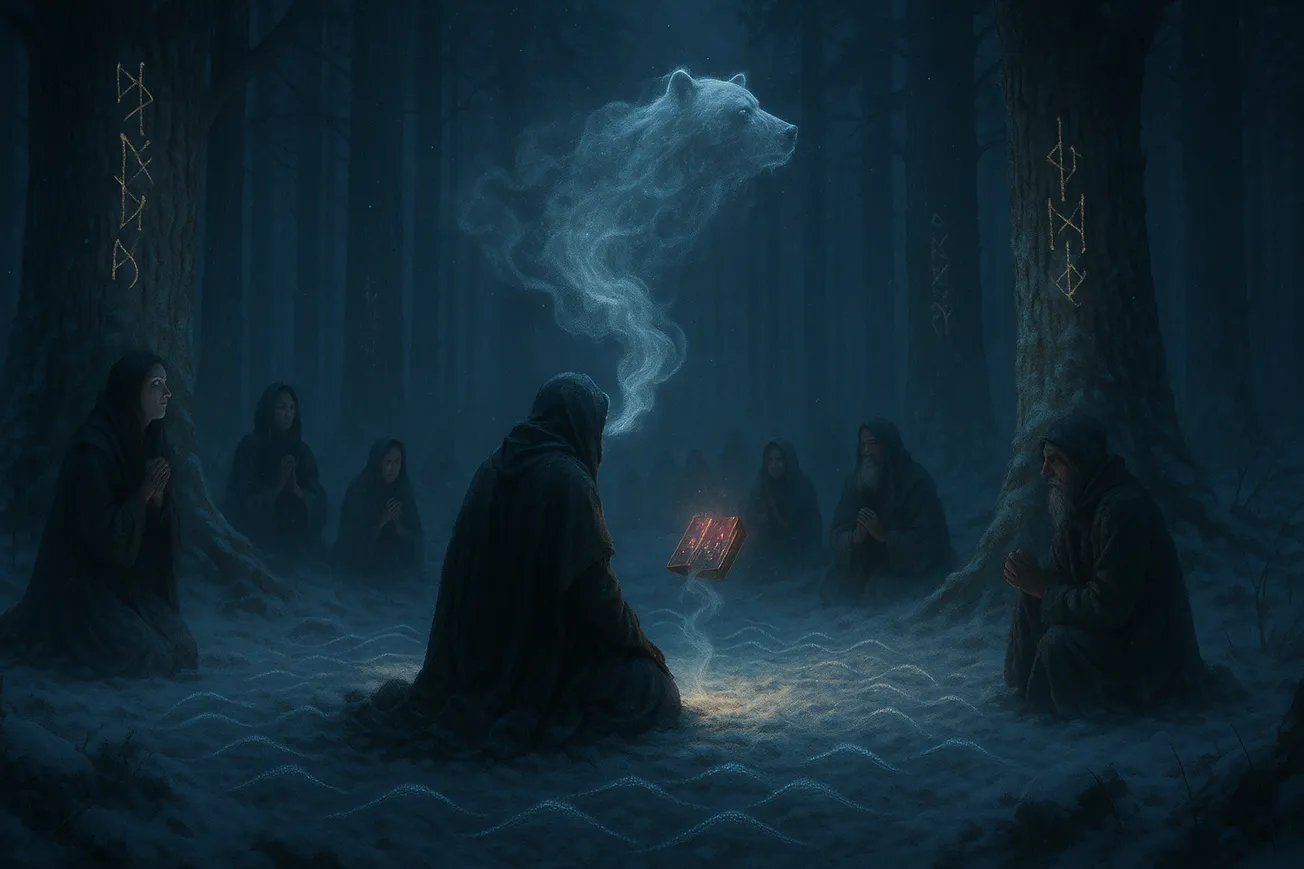🌈 The Fractal Story Engine | Body & Death | (12) BD-001-D2
They found the stranger at the forest’s edge, half-buried in snowmelt and silence.
The body was whole but timeworn, wrapped in cloth etched with curling root symbols no one recognized. Their eyes were open and ancient, though no word passed their lips. Not then. Not ever.
The villagers called them Nameless. Not from cruelty, but reverence. To name something is to place it on a map, and this one did not belong to any known place.
But the old ones remembered.
They whispered of the Bearer who once walked barefoot across the woven paths of grief, cradling the ache of generations in a body made of myth. They said the Bearer did not speak either. They sang.
Now this silent stranger stirred only when the wind passed through the trees just so, as if the forest were trying to remember its own language. And in those moments, the bones beneath their skin began to hum. Faintly. A vibration like breath against glass.
The hum spread.
At first, only the animals noticed. Birds flew in strange spirals. Wolves lay with their ears pressed to the earth. Then the people began to feel it: a shimmer beneath the sternum, a tug in the jaw, a waking ache in old breaks thought long healed.
They tried to cleanse it. Smokes. Salts. Sacred oils. Nothing held.
Then a child, one of the ones marked by the crimson book, placed their ear against the stranger’s spine. What they heard was not a song, but a procession. Footsteps made of grief. A thousand invisible shards trying to become whole again.
The village elders gathered.
Some argued to bury the stranger far from the chamber. Others insisted the shards must be named, blessed, released.
But no ritual matched what was happening. No scroll described bones that hummed in ancestral chords, or strangers who trembled beneath full moons as if tides were moving inside their marrow.
Then one night, the stranger rose.
Not fully. Just to their knees. And from their mouth, silence poured like smoke. Thick. Curling. Dense with memory. It took the shape of a bear made of vapor and ash. Its eyes were voids. Its paws left no prints.
The villagers did not run.
They knelt. One by one.
The bear moved among them, placing its face close to theirs, nose to brow, as if breathing them in. And with each breath, something ancient lifted. Not gone, but shared. Lessened. Diffused like firelight across many stones.
When the bear vanished, the stranger collapsed.
But the humming did not stop.
From that day forward, those who touched the stranger’s hand could hear the shards more clearly. Each person received a tone. A frequency of sorrow that matched their own. They called them Bone Keys.
And with them, new doors opened.
In the forest, trees began to lean toward each other as if whispering. Rivers curled in unfamiliar loops. Old stones sang under moonlight.
The Bearer had not returned.
They had multiplied.

